Group Captain Henry Morton, who has died aged 85, was injured while flying a Lancaster bomber but made an heroic return to base. Throughout the journey he conducted a radio conversation that inspired a scene in the classic film A Matter of Life and Death.
In the film, David Niven plays a suave pilot who speaks to a female radio operator as he hurtles towards his death in a burning plane. The reality was even more extraordinary. Morton’s plane was badly damaged by anti-aircraft fire, and he was the only member of the crew still conscious. Rather than bale out and abandon his men, he risked almost certain death and flew the plane home. During this tense journey he kept up a conversation with radio operator Marjorie Dale. Years later she recalled the incident in a BBC documentary:
‘I asked if there was anything I could do to help – a ridiculous question, given that there was nothing I could possibly do. I’ll never forget his reply. “Can you read me?” he shouted. I replied that I could read him loud and clear. “Good!” he laughed. “Then you can read me the last chapter of Our Mutual Friend. I’ve nearly finished it and I’m dying to know how it ends!”
‘It was typical of Henry that his first thought was to put me at ease by making a joke. He was the archetypal hero: courteous and cheerful under the most extraordinary pressure.’
Morton landed the plane successfully, and was awarded the Victoria Cross. His citation stated that ‘with no thought for his own safety, and despite appalling injuries, he flew for over an hour in a severely damaged plane, saving the lives of all those under his command.’
He attributed his subsequent recovery to ‘the superb efforts of the doctors, the delightful attentions of the nurses, and the restorative qualities of British beer’. The latter was a reference to the legendary ‘grogging parties’ that were held in the Henley Hospital at the behest of Dr James Crosley, the pioneering surgeon who saved numerous wounded airmen.
The radio encounter with Dale would prove auspicious. She was a regular visitor to the hospital, and recalls seeing him for the first time, bandaged like a mummy.
‘I was shocked, and it must have showed. I asked what had happened. “Cut myself shaving,” he replied, and I saw him wink through the eye-holes.’
After a short and unusual courtship Dale accepted Morton’s second proposal of marriage (the first had been made in a less serious spirit during their initial radio conversation).
Nine years later, Morton would again call upon all his powers of resilience. Arriving early for a reunion at the hospital, he went for a walk in a nearby lane and was hit by a speeding car. The driver was Douglas Bader, the legendary air ace who flew with two artificial legs. Bader was visiting the hospital to help boost morale.
Morton’s injuries required the amputation of both legs, and once again his recuperation was supervised by Crosley. After the war, the two of them set up the country’s first specialist clinic for amputees at Charney House in Sussex. Morton would later receive the OBE for his work on behalf of the disabled.
Henry Harrison Morton was born in 1917 at Bexleyheath, Kent. He attended Whitely Manor School and All Souls, Oxford, where he took a first in Classics and won blues in boxing and cricket. He then taught English in South Africa before joining the RAF at the outbreak of hostilities. In addition to the VC, Morton won a DFC for his part in an audacious raid on an airfield near Frankfurt.
The irony of his car crash did not escape him, but Morton bore no grudge against Bader. He swiftly adapted to his tin legs, and was walking within two months of the operation. He was characteristically quick to recognise the comic potential of his situation, and took full advantage of those unaware of his disability.
Village cricket offered an ideal opportunity for mischief. He delighted in unsettling the opposition, and one ruse proved particularly effective. Striding confidently to the crease, Morton would nonchalantly ask the umpire for middle-and-leg. By this time his opponents would have noticed that he was not wearing pads, and concluded that he was either a maniac or a fool. A fast bowler would invariably be deployed, and before long a vicious delivery would clatter against Morton’s tin knee. Without batting an eyelid, he would casually kick the ball away, to the amazement of the other side.
Another variation on this routine occurred when a badly behaved child caused trouble by assaulting guests at a garden party. Friends recall the look of satisfaction in Morton’s eye as the child reeled away in tears after kicking his leg. A similar incident resulted in Morton’s lifetime ban from the traditional Snaresbury shin-kicking contest.
Rumours abounded and he did nothing to dispel them. He particularly enjoyed the one involving a ‘special compartment’ in his prostheses containing cigars, brandy, gin and tumblers. The reality was more prosaic: spare pipe, tobacco, and a half-bottle of scotch for ‘emergencies’.
The first of these provided one of his favourite conversational gambits. Pipe in mouth, he would sidle up to the nearest attractive young lady and conspiratorially confide that ‘I’ve got two pipes – but you can’t see the other one until you’re twenty-one!’ He regarded the occasional slapped face as a price worth paying for the many dinner dates that were secured in this way. Marjorie’s patience was often tested to the limit, but their marriage survived everything he could throw at it.
Young men received short shrift. Those without a pipe clenched between their teeth would be greeted with a brusque ‘Never smoked a pipe? You should!’ Whereupon Morton would turn heel and seek more agreeable company.
Although he suffered considerable discomfort and inconvenience, Morton always made light of his situation. A dinner-party hostess, impressed by his hearty appetite, once told him: ‘I don’t know where you put it all.’
‘Hollow legs,’ he replied with a grin.
Patients at Henley House testify to Morton’s boundless energy and irrepressible good humour. He visited regularly and his arrival was always the cue for riotous laughter and no little tomfoolery. One nurse, exasperated by the noise during a typical bout of horseplay, threw open the doors of the ward and prepared to deliver a broadside. She was rendered speechless by the sight of Morton, artificial leg in hand, playing an impromptu game of rounders. The ‘ball’ was an artificial eye, kindly donated by one of the other players.
He is survived by Marjorie, five daughters and one son.
*
Letters:
Sir, I was fortunate enough to know Henry Morton for half a century, and he was every bit as colourful and admirable as your obituary suggests. He loved life and he loved a drink – woe betide anyone who didn’t have a well-stocked booze cupboard.
If a host proved tardy, Henry could be relied upon to supply a none-too-subtle nudge in the right direction. Holding up his empty glass and subjecting it to a thorough inspection involving plenty of theatrical squinting, he would declare: ‘I don’t know about you, but my tongue’s going like a slipper tonight!’
Another ‘Henryism’ springs to mind. The armed forces were under fire from the do-gooders, who complained about the shortage of brown faces in the ranks. It was standard practice to reply: ‘Black, white, green with purple spots – it makes no difference to me.’
Henry trotted out this stock answer on numerous occasions – not least at drinks receptions when asked, ‘Red or white, sir?’
Wing Commander William (Bill) Tiverton, Twickenham
Sir, One ‘Henryism’ that always amused me was his insistence on announcing the full number when answering his telephone. This was fairly simple when it was ‘Bexley two thousand, four hundred and ninety-seven’. Eventually, however, this became ‘Zero, two billion, eighty-two million, five-hundred-and-two thousand, four hundred and ninety-seven’. Cue endless arguments about long- and short-scale definitions of a billion!
Jean Willis, Tonbridge
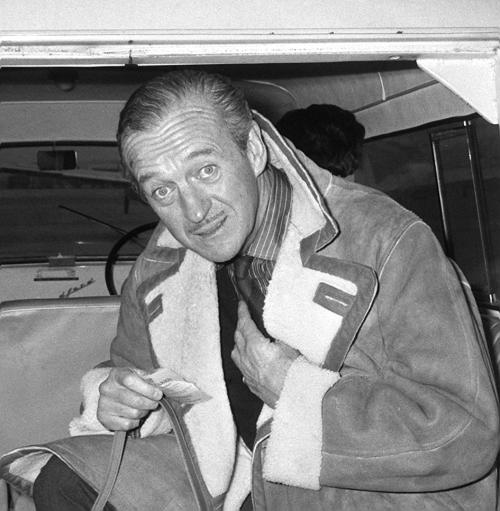

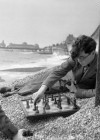

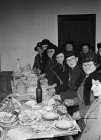



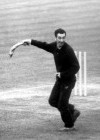
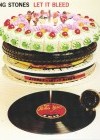
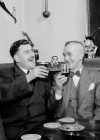
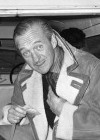
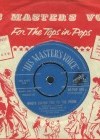

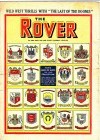
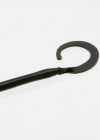
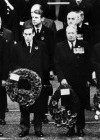



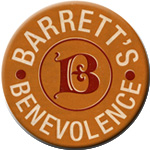
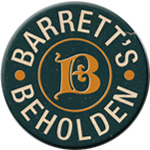
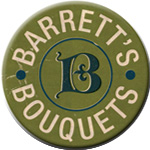






Outrageous, but lovely!